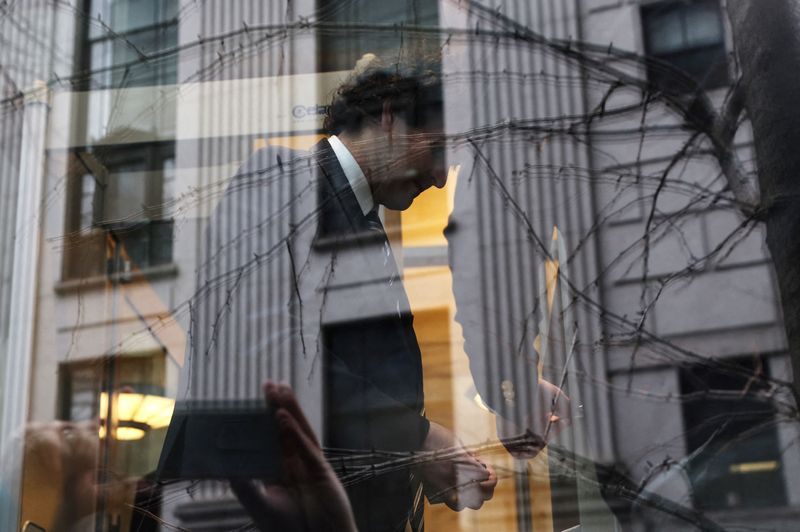By Jonathan Stempel
NEW YORK (Reuters) - Lawyers for Sam Bankman-Fried are nearing an agreement with U.S. prosecutors on revised bail conditions for the indicted FTX cryptocurrency exchange founder, who is trying to convince a skeptical judge he should remain free.
In a letter filed on Friday night in Manhattan federal court, Bankman-Fried's lawyer Christian Everdell said both sides believed they were "close to a resolution", and expect to formally propose new restrictions by next week.
Bankman-Fried, 31, faces a trial set for Oct. 2 on charges of stealing billions of dollars in FTX customer funds to plug losses at his Alameda Research hedge fund, and making large illegal political donations to buy influence in Washington, D.C.
Bail talks occurred this week after U.S. District Judge Lewis Kaplan at a March 10 hearing renewed his concerns that Bankman-Fried's electronic communications with others might exceed the bounds of his $250 million bail package.
Kaplan's approval is needed to modify Bankman-Fried's bail.
The former billionaire has pleaded not guilty to eight counts, and not yet been arraigned on four. He is living under house arrest with his parents in Palo Alto, California.
Prosecutors raised the specter of witness tampering in January after Bankman-Fried tried to contact John Ray, who became FTX's chief executive when the company filed for bankruptcy in November, and an in-house lawyer.
Bankman-Fried's lawyers have said their client was trying to help, not interfere.
At the March 10 hearing, prosecutors and defense lawyers proposed giving Bankman-Fried a flip phone with no internet capability and a basic laptop with limited functions.
That was too generous for Kaplan, who said Bankman-Fried was "inventive" and could conceivably "find a way around" the restrictions without being caught.
In Friday's letter, Everdell also sought the judge's permission to let Bankman-Fried in the meantime use a laptop to access some FTX materials.
Though the laptop would lack monitoring software or restrict Bankman-Fried's internet access, a lawyer or paralegal would oversee his use and take the laptop away when Bankman-Fried finished with it, Everdell said.
The case is U.S. v. Bankman-Fried, U.S. District Court, Southern District of New York, No. 22-cr-00673.
